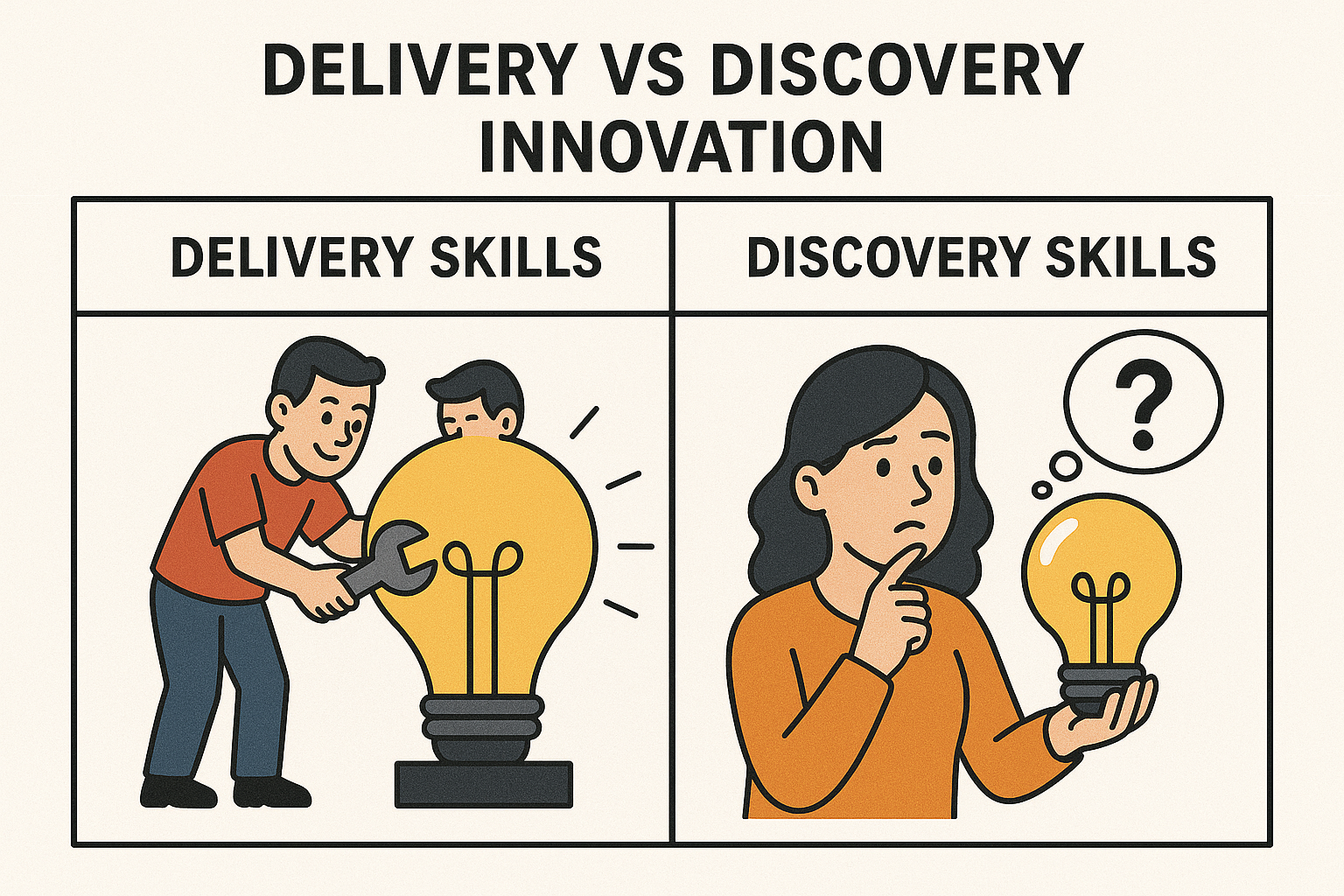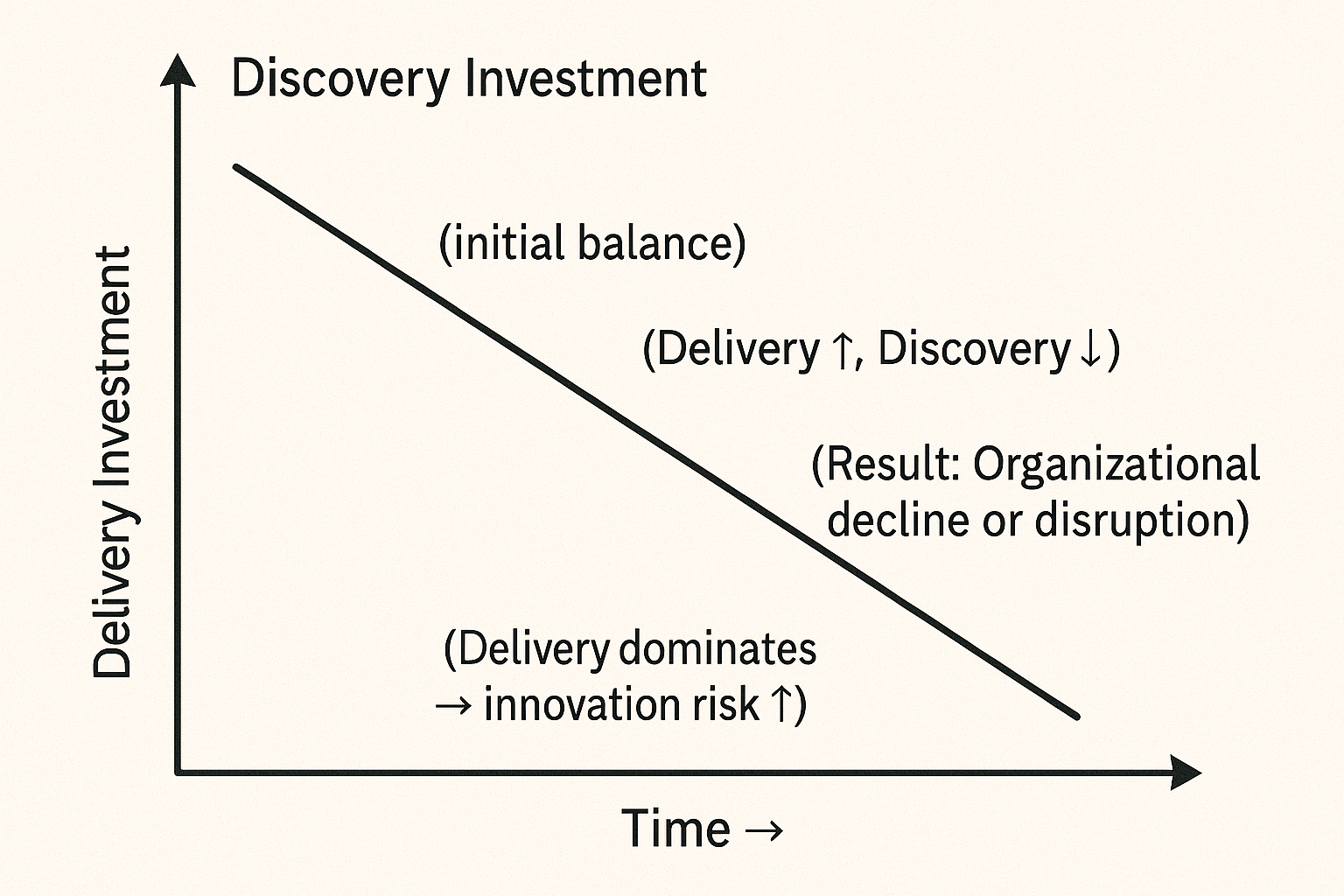
Summary:
Delivery skills focus on efficient execution of existing business models.
Discovery skills focus on exploration and creation of new business models.
Organizations fail to innovate mainly because they over-invest in delivery and under-invest in discovery, becoming too focused on today’s success and blind to tomorrow’s opportunities.
Delivery Skills vs Discovery Skills
| Aspect | Delivery Skills | Discovery Skills |
|---|---|---|
| Goal | Execute, optimize, scale existing offerings | Explore, invent, validate new opportunities |
| Focus | Efficiency, predictability, quality control | Experimentation, creativity, adaptability |
| Mindset | “Do it right.” | “Find the right thing to do.” |
| Core Activities | Project execution, process optimization, cost management | Ideation, prototyping, customer insights gathering |
| Organizational Value | Sustains current revenue and profitability | Secures future growth and competitive edge |
| Key Roles | Operations, project managers, finance, engineering teams | R&D, innovation labs, product strategists, intrapreneurs |
Why Organizations Fail to Innovate
| Root Cause | Explanation | Impact |
|---|---|---|
| Delivery-Driven Culture | Organizations reward operational excellence (KPIs, targets), not exploration. | Discovery skills atrophy, ideas are stifled early. |
| Short-Termism | Pressure for quarterly results discourages risk-taking and long-term bets. | Innovation projects are underfunded or abandoned. |
| Fear of Cannibalization | Leaders fear that new innovations will undermine existing profitable products. | Missed opportunities (e.g., Kodak with digital cameras). |
| Lack of Structures for Discovery | Innovation initiatives are trapped inside traditional hierarchical structures. | Discovery requires autonomy and faster cycles, which delivery-focused orgs resist. |
| Risk Aversion and Cultural Inertia | Organizations become too comfortable with “what works.” | They fail to respond to disruptive changes from competitors or market shifts. |
| Misaligned Talent Strategy | Hiring favors operators and executors over explorers and innovators. | Teams lack the cognitive diversity needed for breakthrough thinking. |
Practical Challenges
I believe that in any organization, innovation must be driven from the top, not from the bottom up. Too often, I see leaders primarily focused on cost and timelines. Rarely do I hear a leader say, ‘Don’t worry about the cost or deadlines—I’m here to support your efforts to innovate and explore new possibilities.
How the Gap Worsens Over Time

Strategic Insight:
Successful innovators master the “ambidexterity” of managing delivery and discovery together.
Corporate examples:
Amazon invests heavily in delivery (supply chain) and discovery (AWS, Alexa, Project Kuiper).
Apple relentlessly executes delivery (iPhone upgrades) while pioneering discovery (Wearables, AR/VR).
What soft skills have been most valuable in your leadership journey? Share your thoughts below.